Alappuzha
Alappuzha, the smallest district in Kerala, is a picturesque destination known for its intricate network of backwaters, canals, and lagoons. The district's landscape is characterized by lush paddy fields, coconut groves, and the iconic Kuttanad region, dubbed the "Rice Bowl of Kerala."
The district flourished under various rulers, including the second Chera Empire and colonial powers like the Portuguese and Dutch, leaving behind a legacy of cultural diversity and historical landmarks.
Economically, Alappuzha thrives on agriculture, marine products, and tourism. The coir industry, for many years has been the mainstay of its economy, with the district serving as the traditional hub of coir manufacturing in Kerala.
Kuttanad
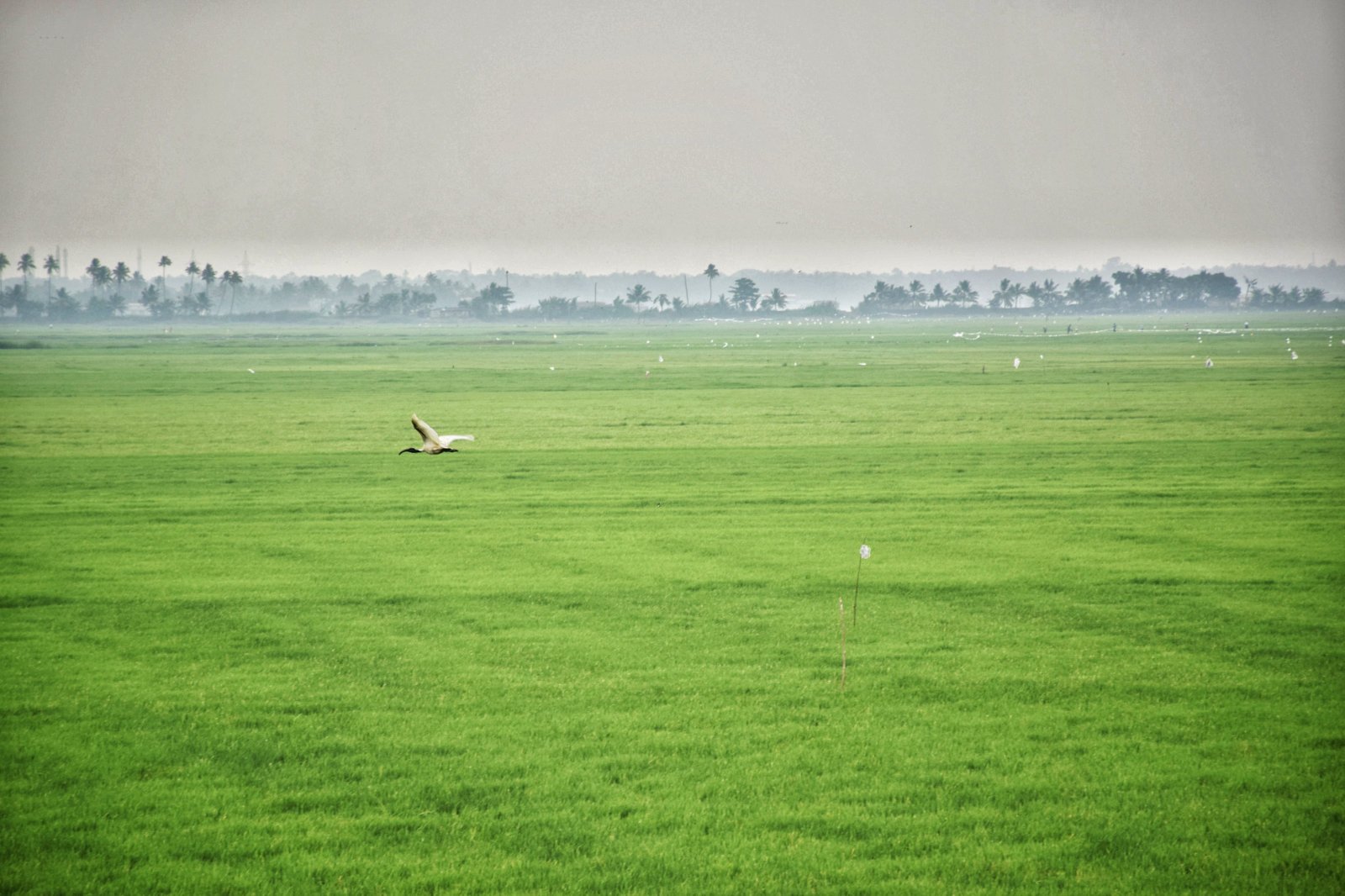
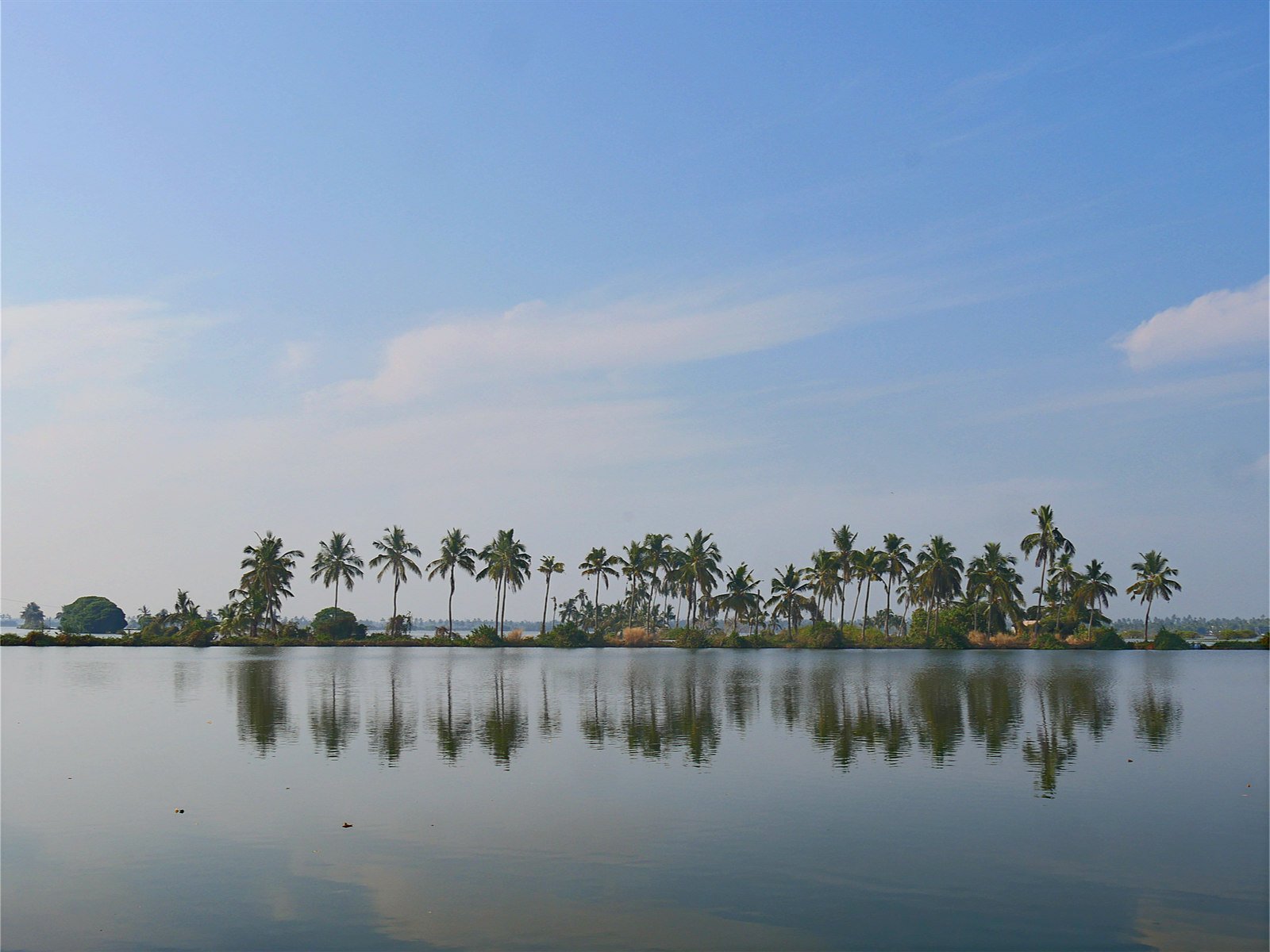
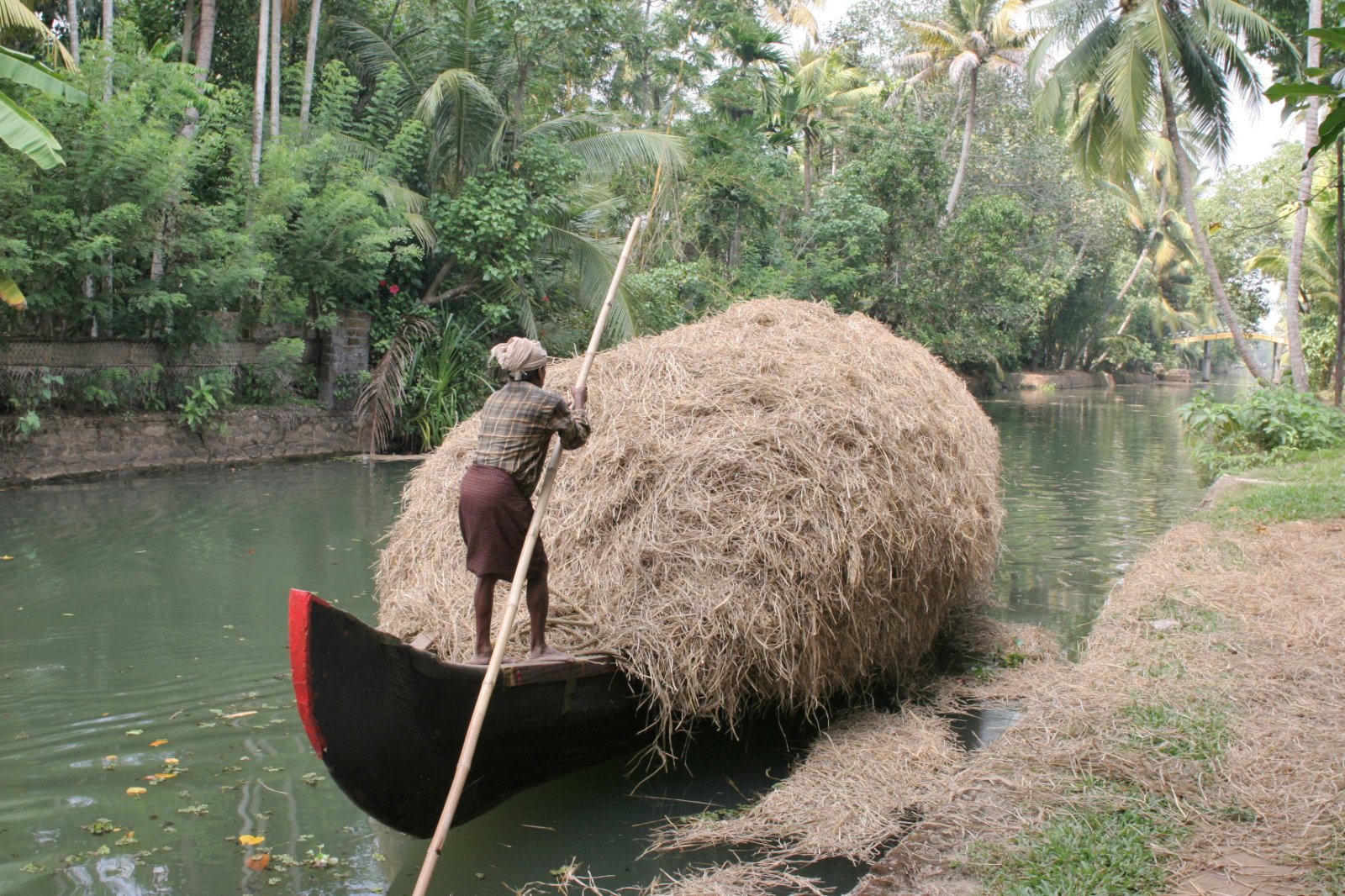
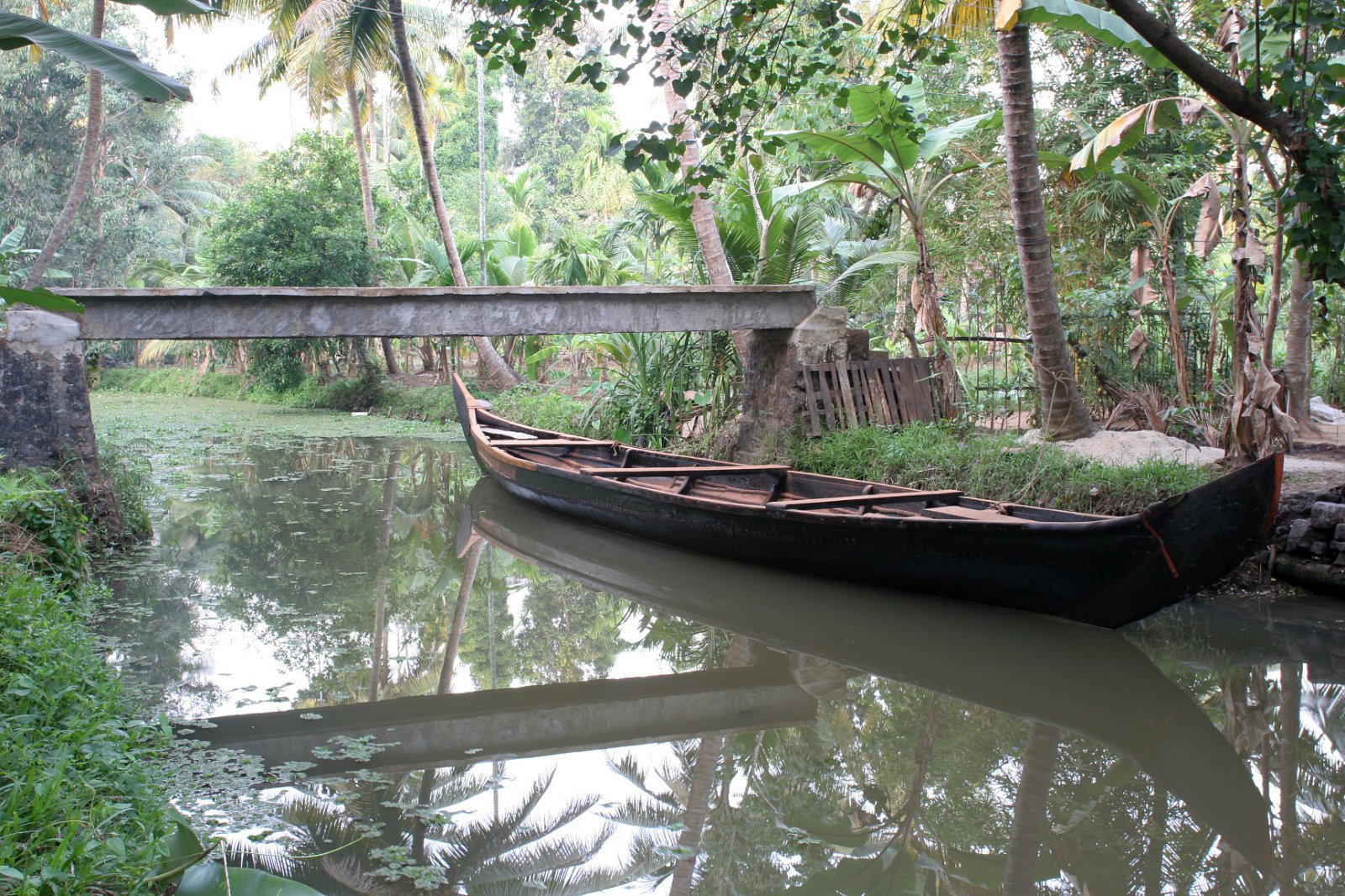
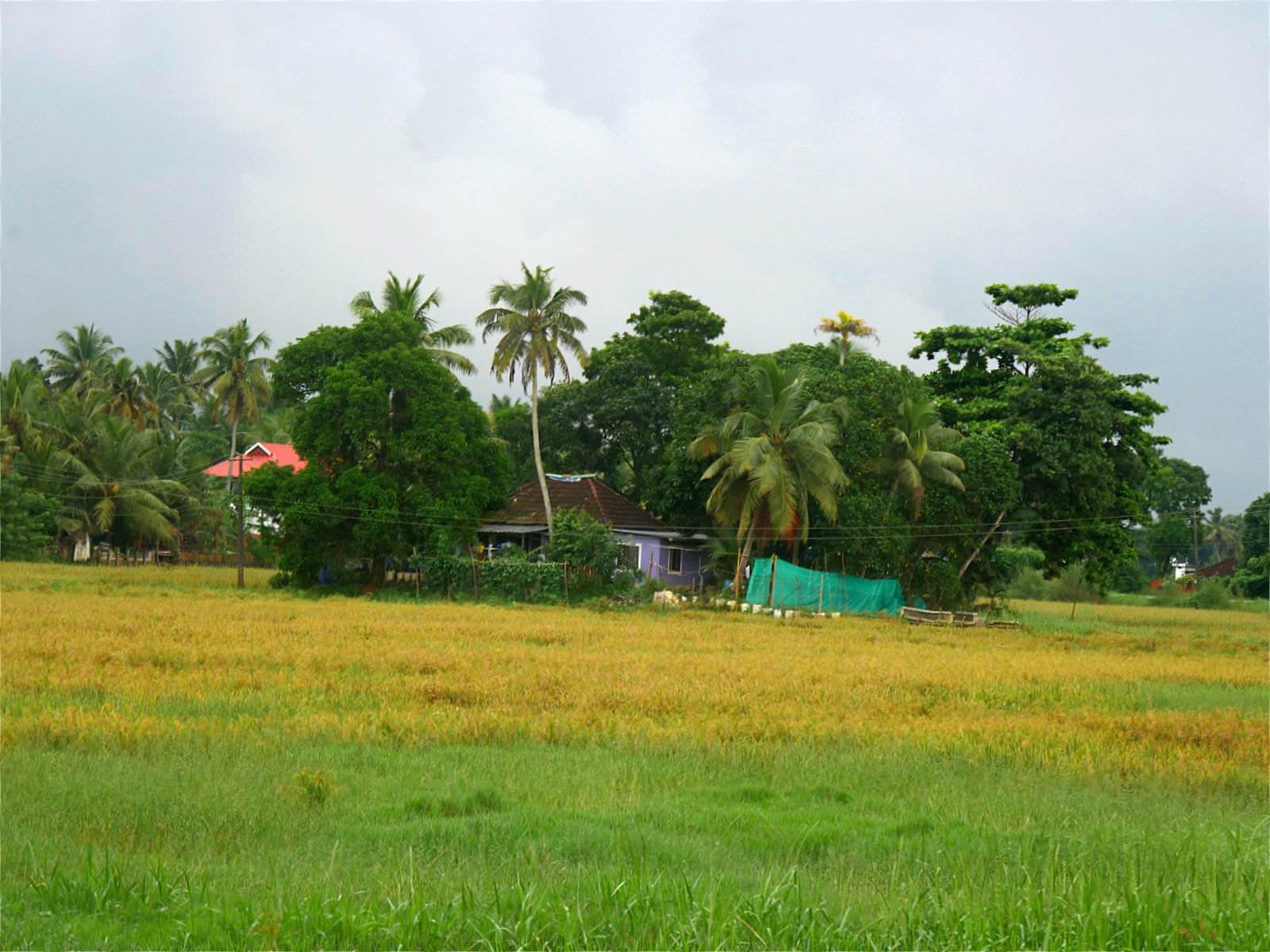
Often referred to as the “Rice Bowl of Kerala,” Kuttanad is a region located in the Alappuzha district of Kerala, India. It is known for its unique geography, being one of the few places in the world where farming is carried out below sea level. The region is crisscrossed by an intricate network of rivers, canals, and backwaters, making it exceptionally fertile and suitable for agriculture.
The farmers in Kuttanad use a distinctive method known as the “polder system,” which involves reclaiming land from the backwaters by constructing bunds or embankments to prevent saline water intrusion from the sea. These bunds create paddy fields that lie below sea level, requiring constant water pumping using traditional methods or, more recently, motorised pumps to maintain water levels conducive to rice cultivation.
Apart from rice, other crops such as coconut, banana, yam, and various vegetables are also cultivated in Kuttanad. Coconut palms are a common sight, and their cultivation plays a significant role in the region’s agricultural economy. Fish farming, particularly freshwater prawn and fish culture, is also practised in the backwaters and canals of Kuttanad, adding to the diversity of farming activities.
Kettuvellam
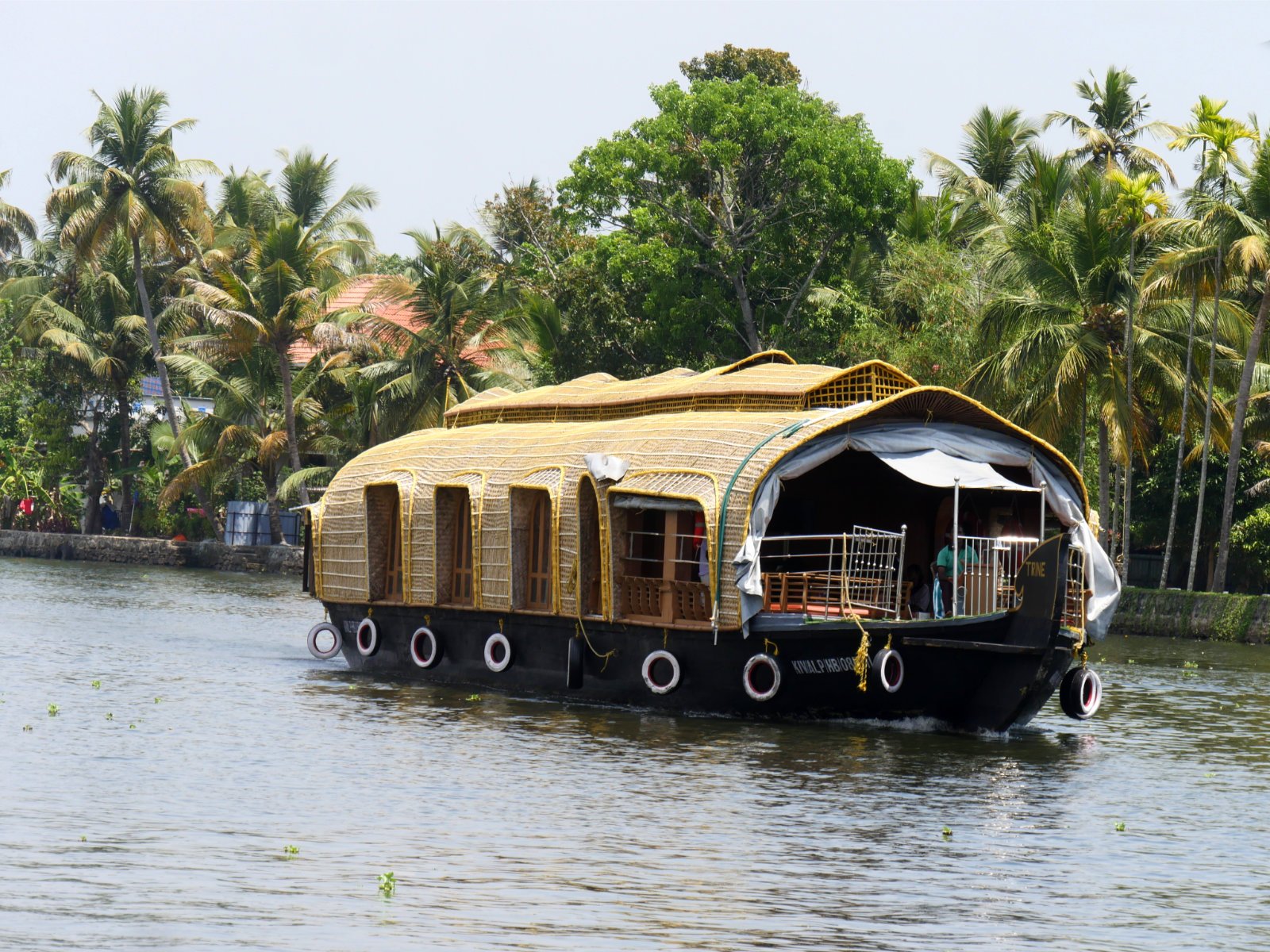
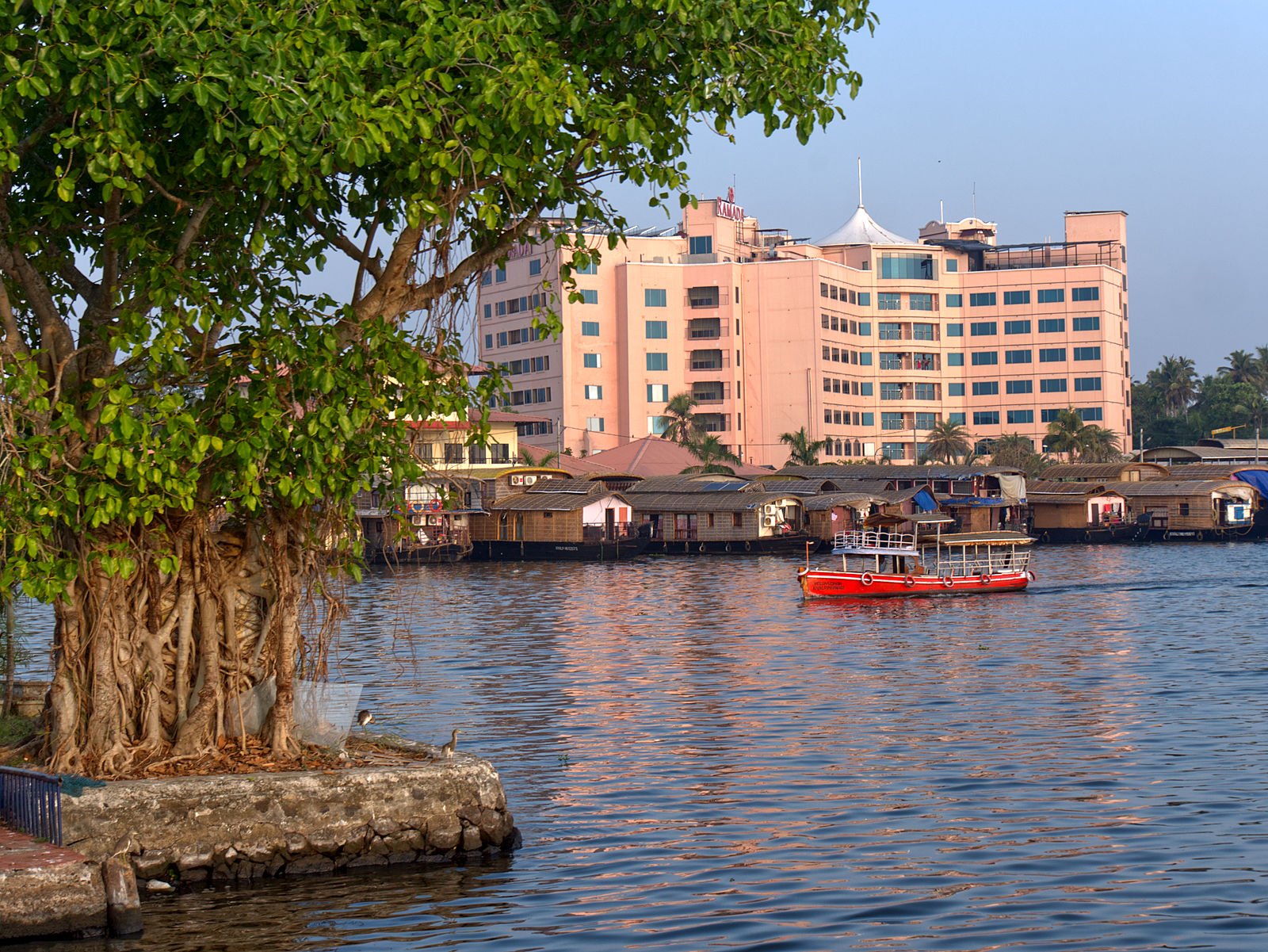
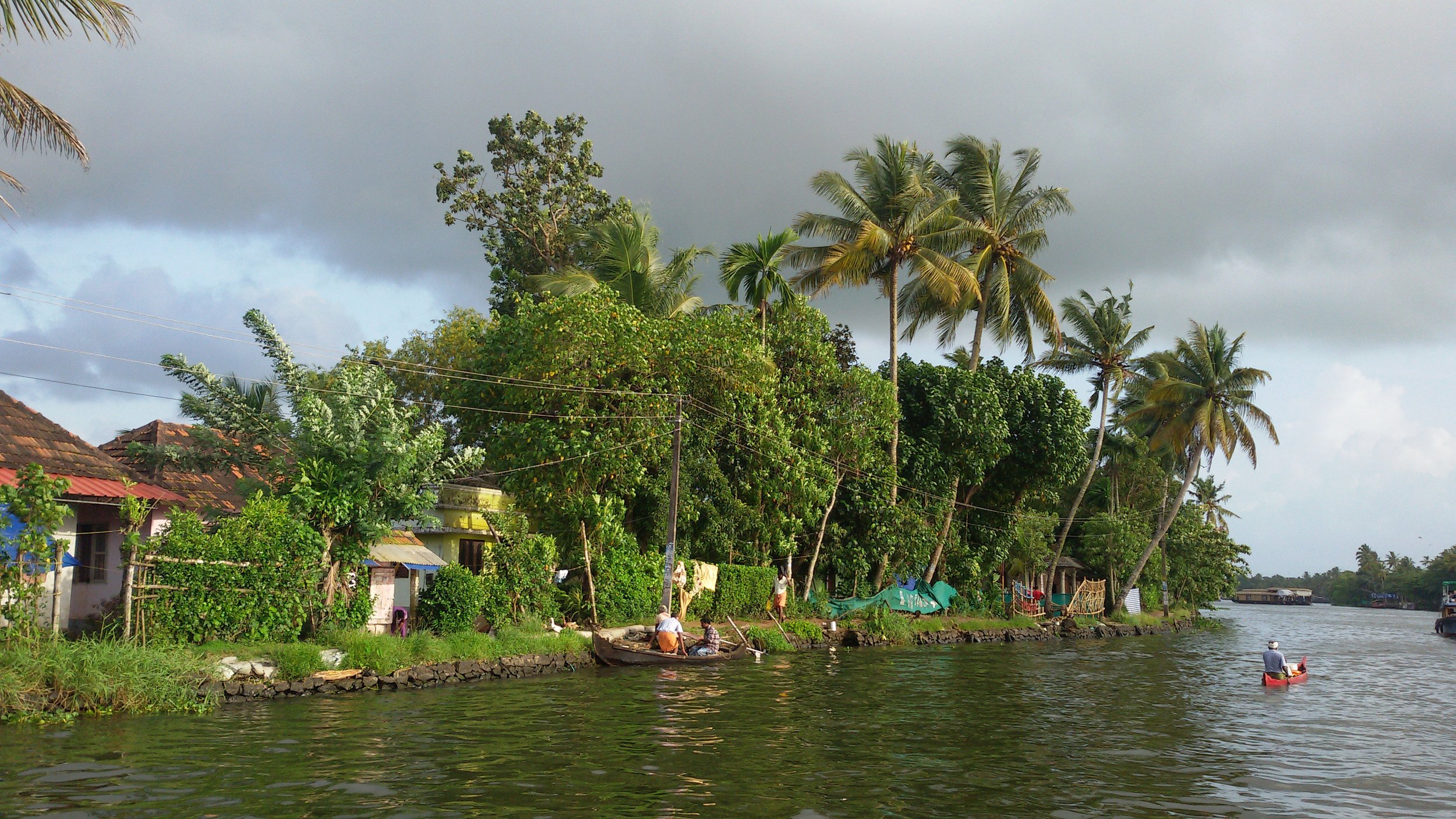

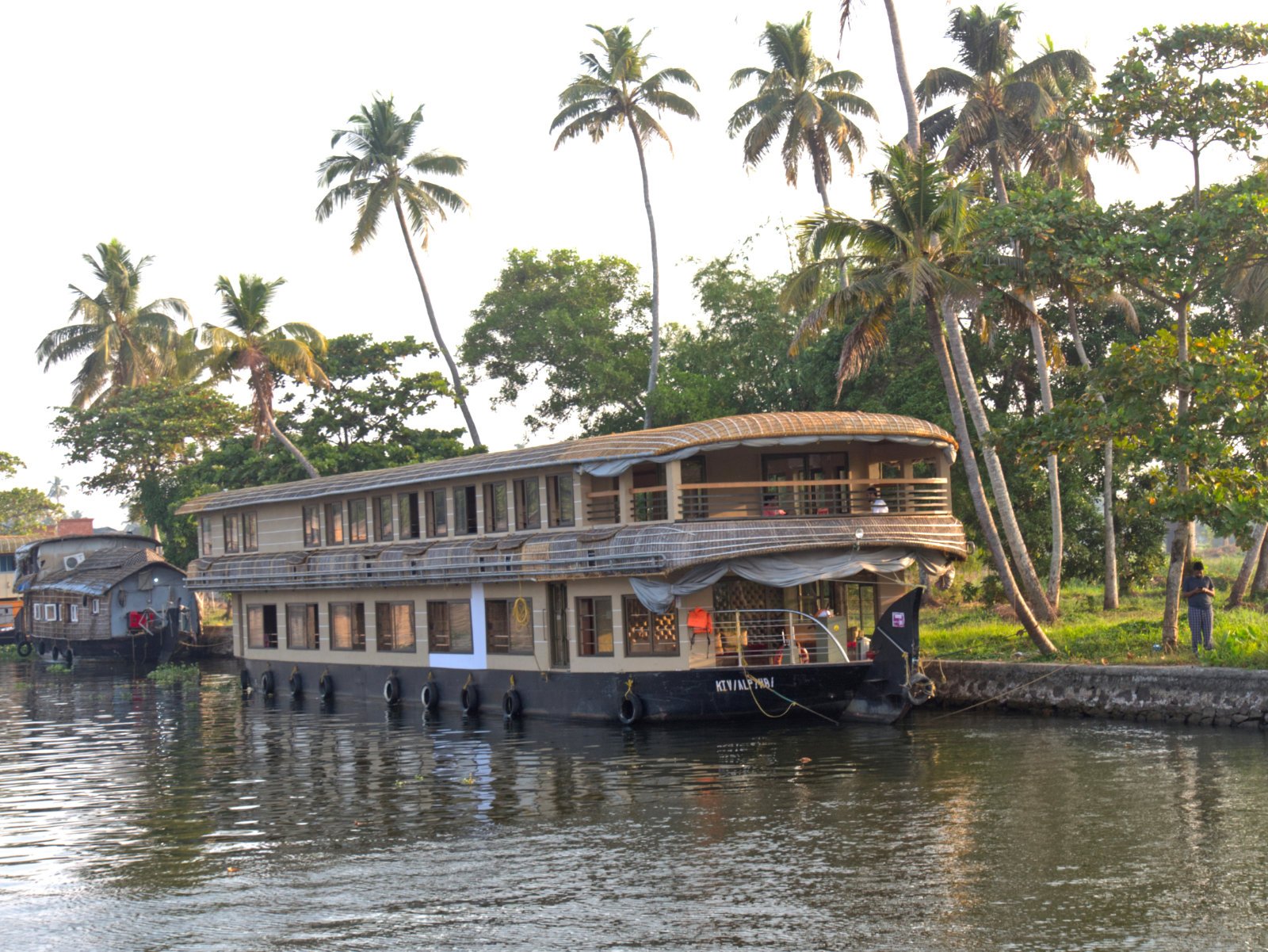
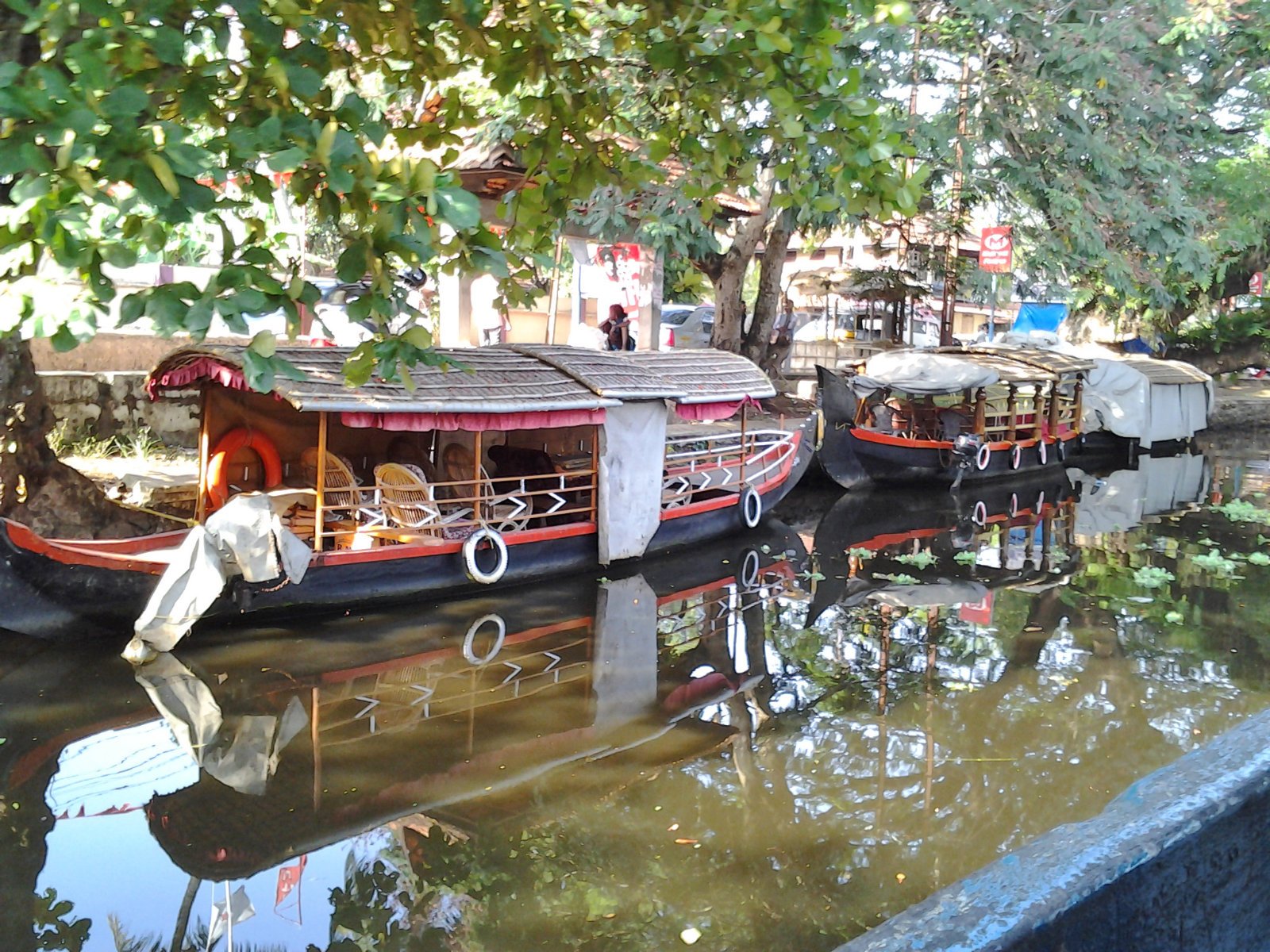
Houseboats, also known as “kettuvellam”, are traditional boats that were once used for transporting rice and spices along the backwaters to the Kochi port in Kerala, India. These boats have been an integral part of the
region’s culture and economy for centuries. However, with the advent of modern means of transport, these boats fell into disuse. In recent times, enterprising Malayalees came up with the idea of converting these abandoned boats into floating homes for tourists. These houseboats now have modern amenities such as toilets, kitchens, and even air conditioning. They are now a popular tourist attraction, offering a unique way to experience the beauty of Kerala’s backwaters.
